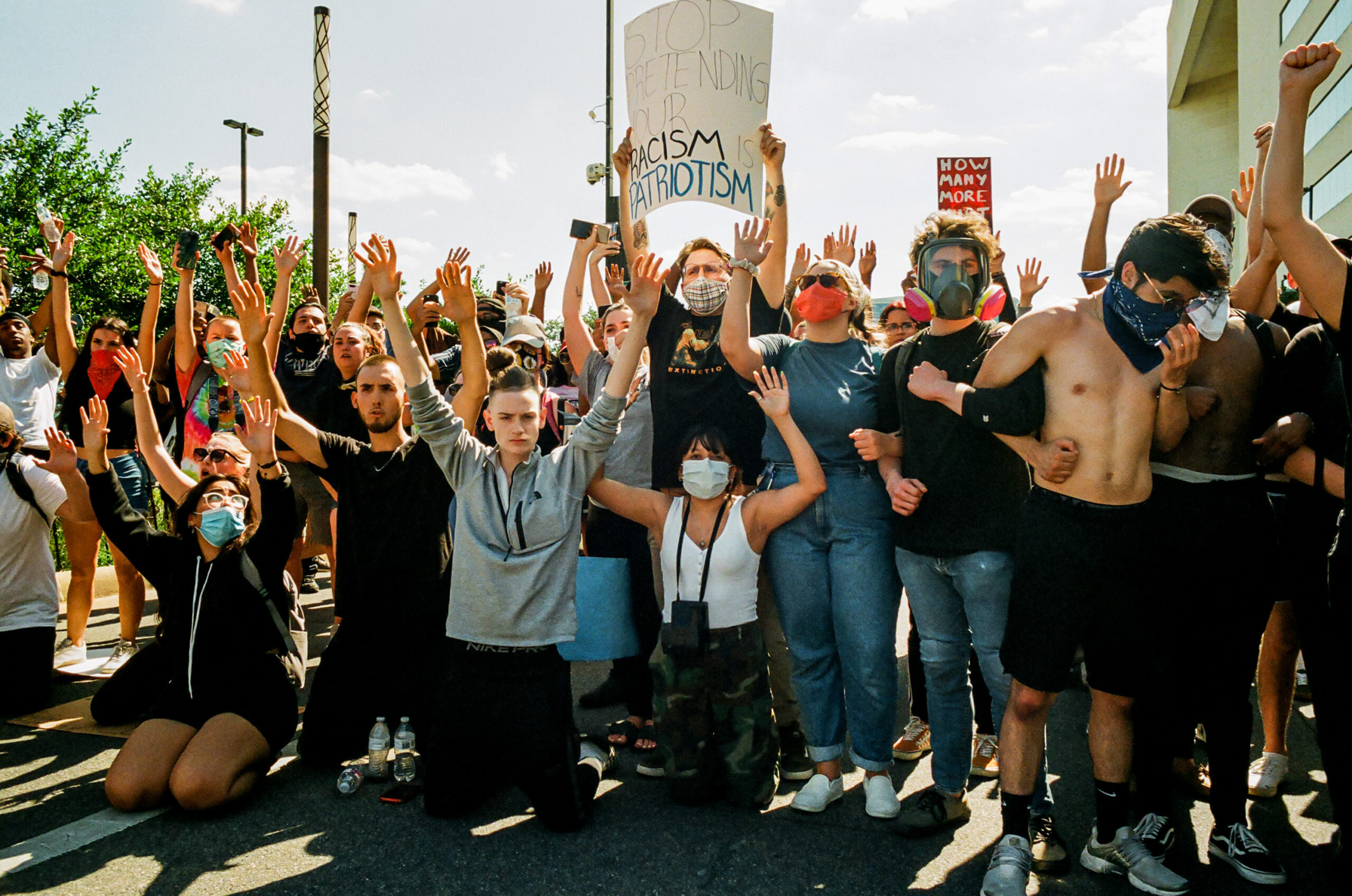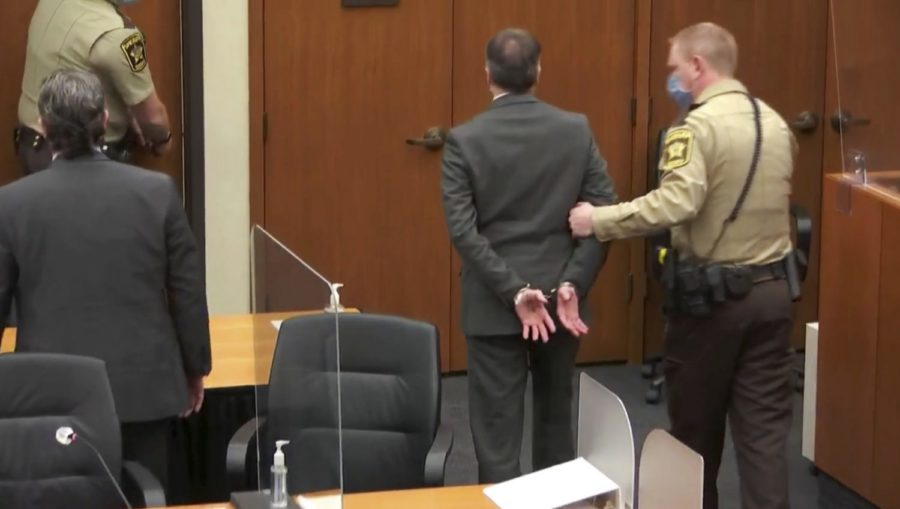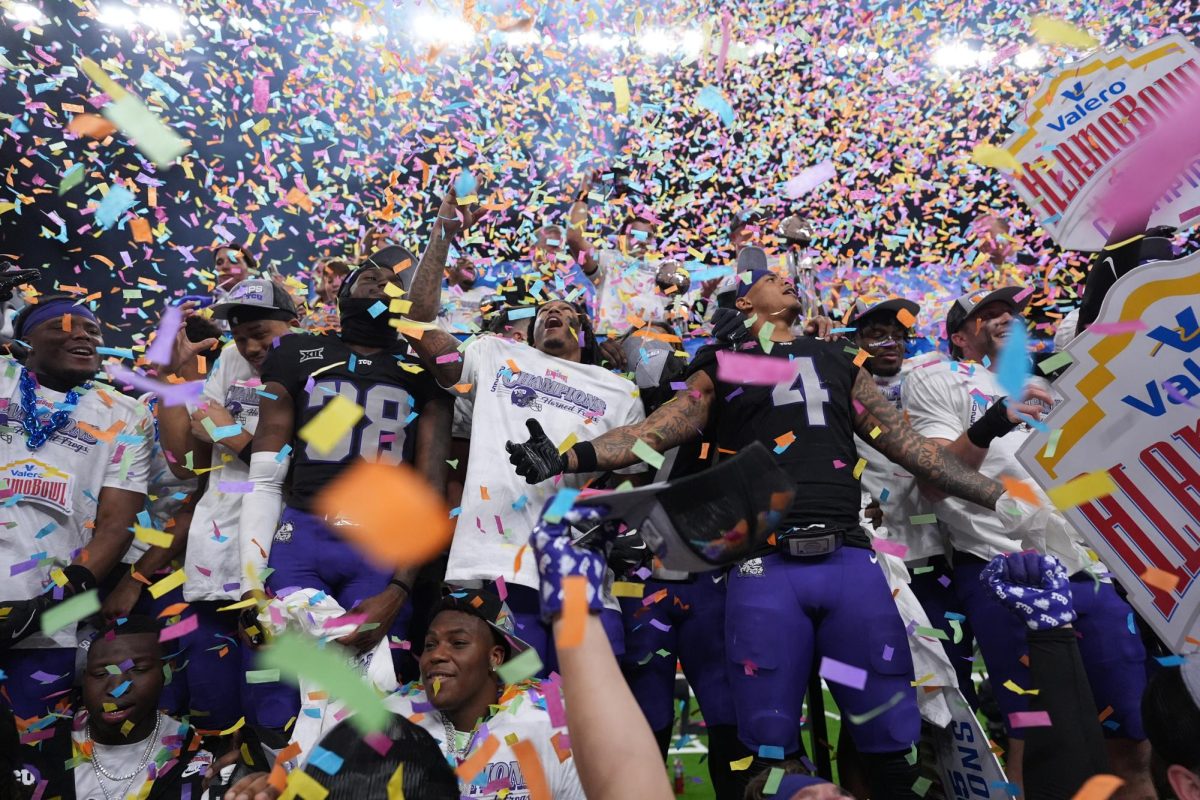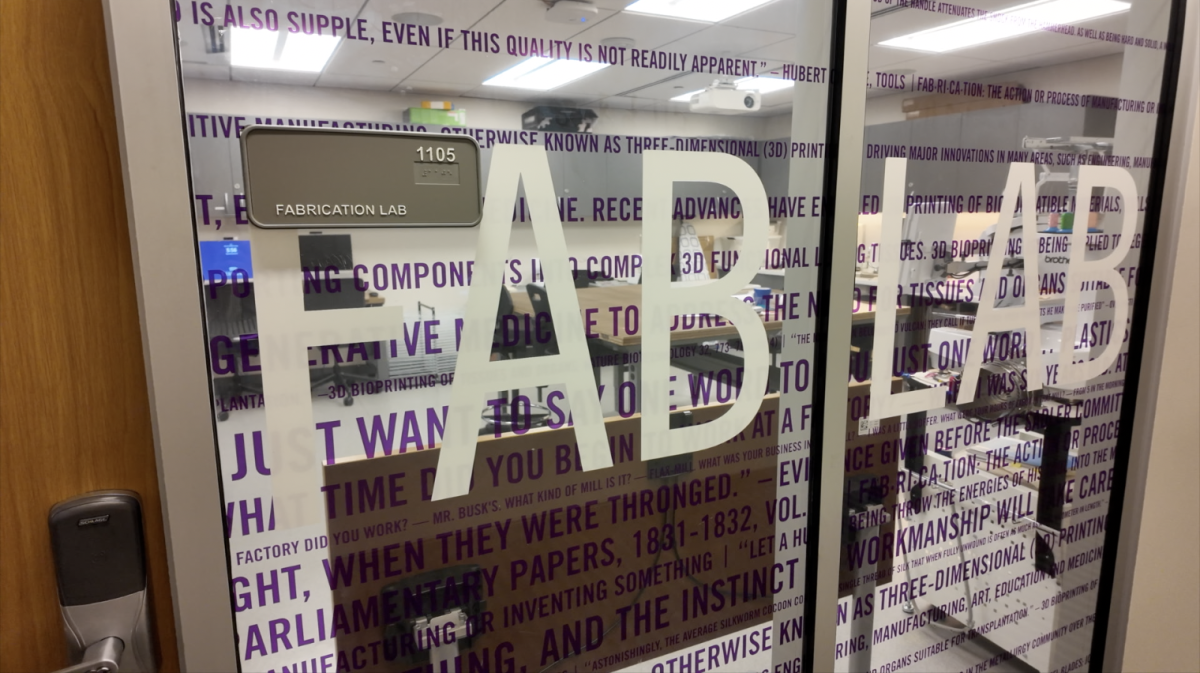Thirty years after a jury acquitted four Los Angeles police officers charged with assaulting Rodney King, a Minneapolis panel convicted former police officer Derek Chauvin on all charges, including second-degree and third-degree murder in the death of George Floyd.
African American students at TCU said they hope the verdict has implications on the social justice movement.
“As being a black person, I’m very happy to see that justice has finally been served because it’s been so long and so many years of trying to have justice for African Americans,” said Zuri Thomas, a junior entrepreneurship management major. “Hopefully, what has happened today can be spread to further cases. Hopefully, no more [police brutality] will happen but if something else does happen, the community that we have together will continue to grow and justice will continue to be served.”
Floyd’s death last summer sparked global protests and galvanized the Black Lives Matter movement. Chauvin was videoed pressing his knee into Floyd’s neck for nine minutes. Floyd was later pronounced dead.

Chauvin’s defense attorneys argued that Floyd died from drugs in his system and pre-existing conditions, but prosecutors argued that Chauvin was responsible.
“Black people don’t have to die week after week for something that could be avoided with proper training and better people in control of situations like that,” said Angel Frippa, a junior mechanical engineering major.
Accountability
The verdict, announced Tuesday afternoon, created mixed reactions in the Campus Commons.
“My initial reaction is that I think justice is served. I also think that it’s important to keep our law enforcement accountable,” said Lillyan Shelly, an experimental psychology graduate student. “I think it’s an interesting concept to think that, me, today could become a police officer, and tomorrow I could get away with killing someone. To me, that sounds like something that’s really scary, so I think it’s important to keep our police officers accountable.”
Sophomore finance major Cameron Watson said that the result was “a good thing – at the very least – that we can hopefully set higher accountability standards.”
“It’s a good thing – at the very least – that we can hopefully set higher accountability standards”
– Cameron Watson, ’23
Massimo Fragapane, an accounting and finance double major, said he was a little surprised by the verdict.
“I figured they would’ve made him innocent for some backward reason that doesn’t make any sense, but I’m happy,” Fragapane said.
Some students expressed feeling relieved.
“I read into it a little today and saw some tweets on Twitter, and I just thought that it was a good thing that he was found guilty,” first-year student Zachery Whisenant said. “I mean, that’s what I believe that he should’ve been found, and that’s what came out of it.”
But others questioned the evidence and science presented by prosecutors.
“The data that I’ve been hearing about is him not dying from asphyxiation and how his knee was actually on his shoulder – and not on his neck,” said Grayson Dow, a sophomore on the pre-business track. “I was actually really surprised that they convicted him on that with the evidence showing that he did not.”
Here’s how some TCU students have reacted on Twitter:
Odds of an appeal
Christiane Emery, a junior film, television and digital media major, said she sees a high likelihood of an appeal via claims of a mistrial by Chauvin’s defense.
“My reaction is that it’s really good that it happened but because of the things in the media with the vaccine, inciting the protestors and Biden kind of implying that the right verdict is guilty, it can house a cause for an appeal process,” Emery said. “A lot of people are claiming it’s going to be the easiest appeal to a mistrial but at the same time with the public’s reaction, I don’t know if that will actually hold up in court. I still think that’s going to be attempted.”










